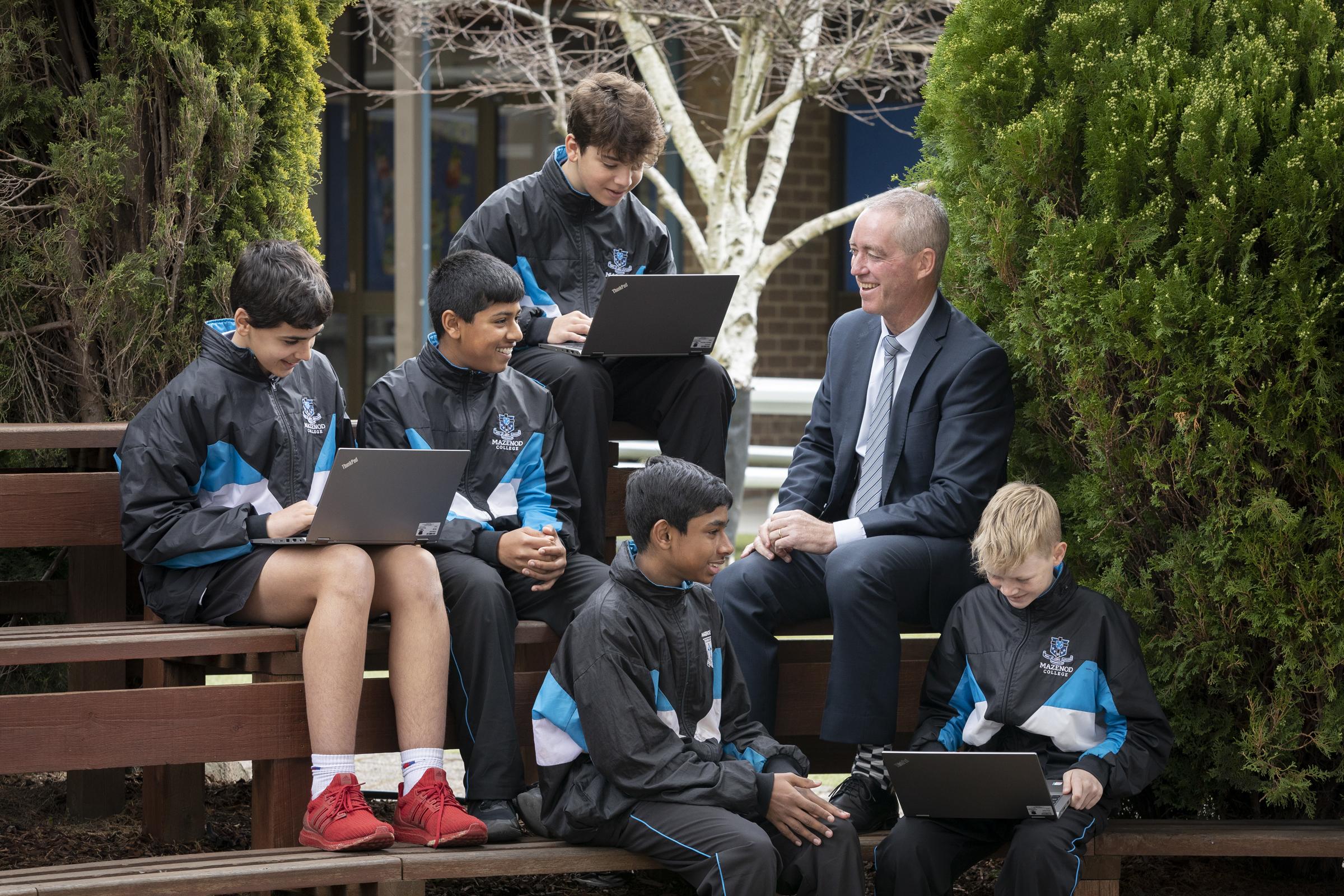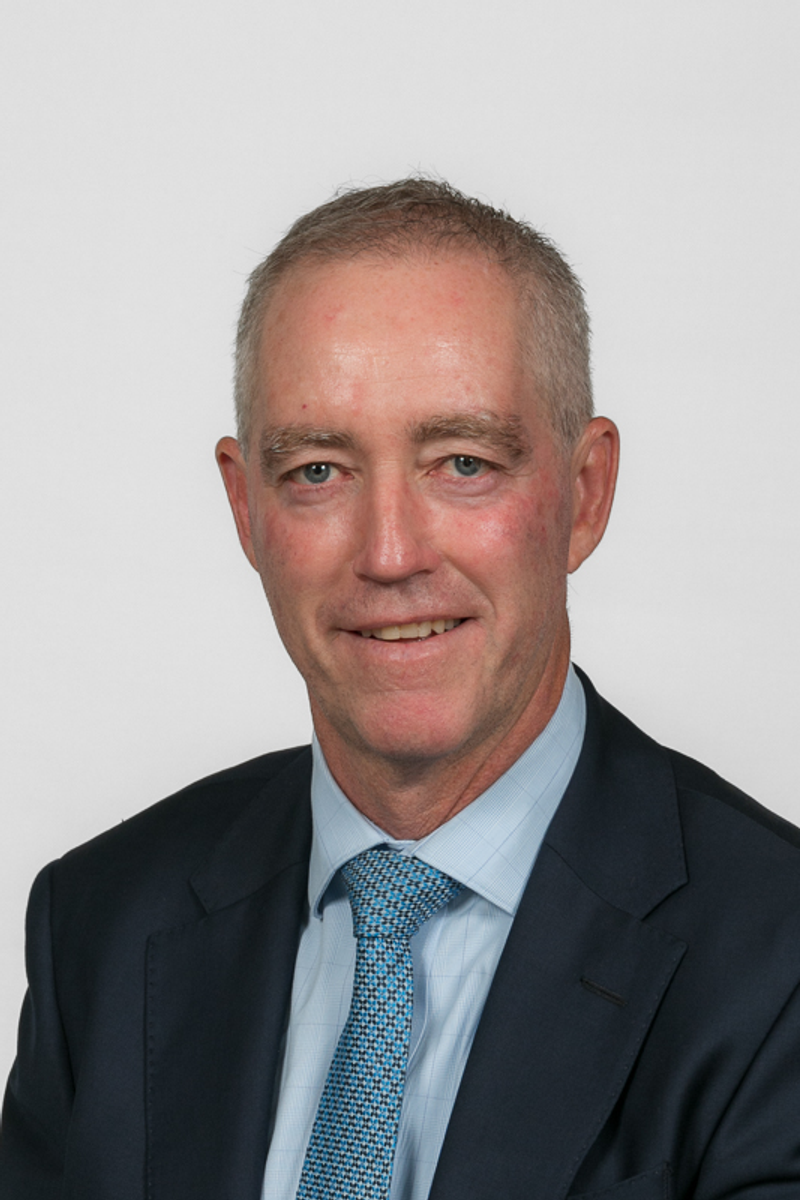Principal's Post

Saint Eugene de Mazenod Day
Today we remember Saint Eugene de Mazenod and the legacy of outreach to the poor and marginalised people of his time. It is a time where we celebrate one individual who brought real energy and commitment in particular ways to the mission that all Christians share – to be always striving to build a world where peace and justice flourish and human dignity is fully respected.
I want to acknowledge the great work being done by many staff, students and families to raise our awareness of the many challenges our country and the world faces in the form of inclusiveness, poverty, conflicts, social upheavals which create refugees, homelessness, disease and hunger. Not only are we raising our awareness of these issues, but in lots of small ways we are making a practical response with some fund-raising activities. These gestures, however small, do make a difference. We cannot fix all the problems of the world, but we can make a little start. Mother Teresa, in confronting the enormity of the problem of poverty in India said: “God doesn’t require us to succeed, he only requires that we try.” So, I hope that the legacy of St Eugene De Mazenod will be a worthy celebration of your generosity and the many efforts staff, students and families are making.
National Sorry Day and Reconciliation Action Plan (RAP)
At the core of our Reconciliation Action Plan (RAP) is the acknowledgment of the traditional custodians of the land on which Mazenod College stands, the Bunurong People of the Kulin Nation. We pay our respects to the elders past, present, and emerging, and recognize their enduring connection to the land, waters, and culture. By acknowledging the traditional owners of the land, we honour their resilience, wisdom, and profound contribution to our collective heritage.
Mazenod College commits to walking with and learning from our First Nations Peoples, who clearly have so much to teach us. We commit to the achievement of reconciliation and healing through the acknowledgement and practice of Aboriginal and Torres Strait Islander history and culture. Through the lens of authentic relationships, respectful conversations and opportunities, Mazenod strives to support Aboriginal and Torres Strait Islander students, staff and members of the broader community.
As an educational institution, Mazenod College recognizes the pivotal role it plays in shaping the attitudes, values, and behaviours of future generations. Thus, we are committed to empowering our students to become informed, compassionate, and active agents of reconciliation. Through experiential learning opportunities, service projects, and cultural exchanges, we inspire our students to champion justice, equality, and reconciliation in their communities and beyond.
In advancing the three actions of reconciliation – Relationships, Respect and Opportunities, Mazenod wishes to provide strong leadership in promoting respectful relationships and creating meaningful opportunities with Aboriginal and Torres Strait Islander Peoples. The Mazenod College RAP will provide guidance and momentum to integrate and embed the values and priorities of the reconciliation movement into the fabric of our school culture – daily ways of being, knowing and doing.
Our commitment to reconciliation extends beyond mere acknowledgment; it encompasses active engagement, education, and advocacy. Through our RAP, Mazenod College seeks to embed First Nations perspectives, histories, and cultures into all aspects of our educational programs. We aspire to foster a deeper understanding and appreciation of Aboriginal and Torres Strait Islander cultures among our students, staff, and broader community.
The spirituality we foster, develop and present to our youth must be uniquely Australian. The Mazenod College Reconciliation Action Plan highlights a commitment to walking with and alongside Aboriginal and Torres Strait Islander Peoples to embody a contemplative Christian spirituality. With this in mind, we could learn much from the spirituality of Aboriginal and Torres Strait Islander Peoples, who understand the sacredness and connectedness of all creation. The sacred will be at the heart of everything we do and feel, and God at Mazenod will not be proud, haughty or distant but rather, every day, horizontal and earthy.
Finally, on our reconciliation journey, we commit to continual cycles of learning, unlearning and relearning, to improve the cultural competency of all in our community, so that we become proactive in our pursuit of justice, healing and restoration, to create a shared identity which reflects the best of all of us, as we ensure that past wrongdoings are never repeated.
At the Full College Assembly on Friday May 24, we will endorse the Mazenod College Reconciliation Action Plan. In addition, the social justice committee has organised activities across the curriculum to recognise and acknowledge the contributions of our First Nations Peoples. We continue work with the traditional custodians of this land upon which Mazenod College stands, the Bunurong people of the Kulin nation. Who long before us lived, loved and raised their children on this land.
Laudato Si’ Week
May 24 marks the ninth anniversary of Pope Francis’ encyclical letter Laudato Si’: On Care for Our Common Home. Pope Francis has helped Catholics to understand the connection people have to the whole of creation and that caring for the entire community of people and Earth is central to mission. The Australian Catholic Bishops Conference (ACBC) invites Catholic parishes and communities to celebrate Laudato Si’ Week from 19 to 26 May in acknowledgement and appreciation of the holistic approach to care for God’s creation in the Pope’s message.
Laudato Si’ Week helps us to hear more clearly the call to listen and learn from our collective experiences and to seek the guidance of the global community. Community resilience and empowerment together form one of the pillars of the Laudato Si’ Action Platform, which is being designed to support Catholic communities as they deepen their commitment to hearing the cries of people and planet.
All the best,
Dr Paul Shannon
Principal

